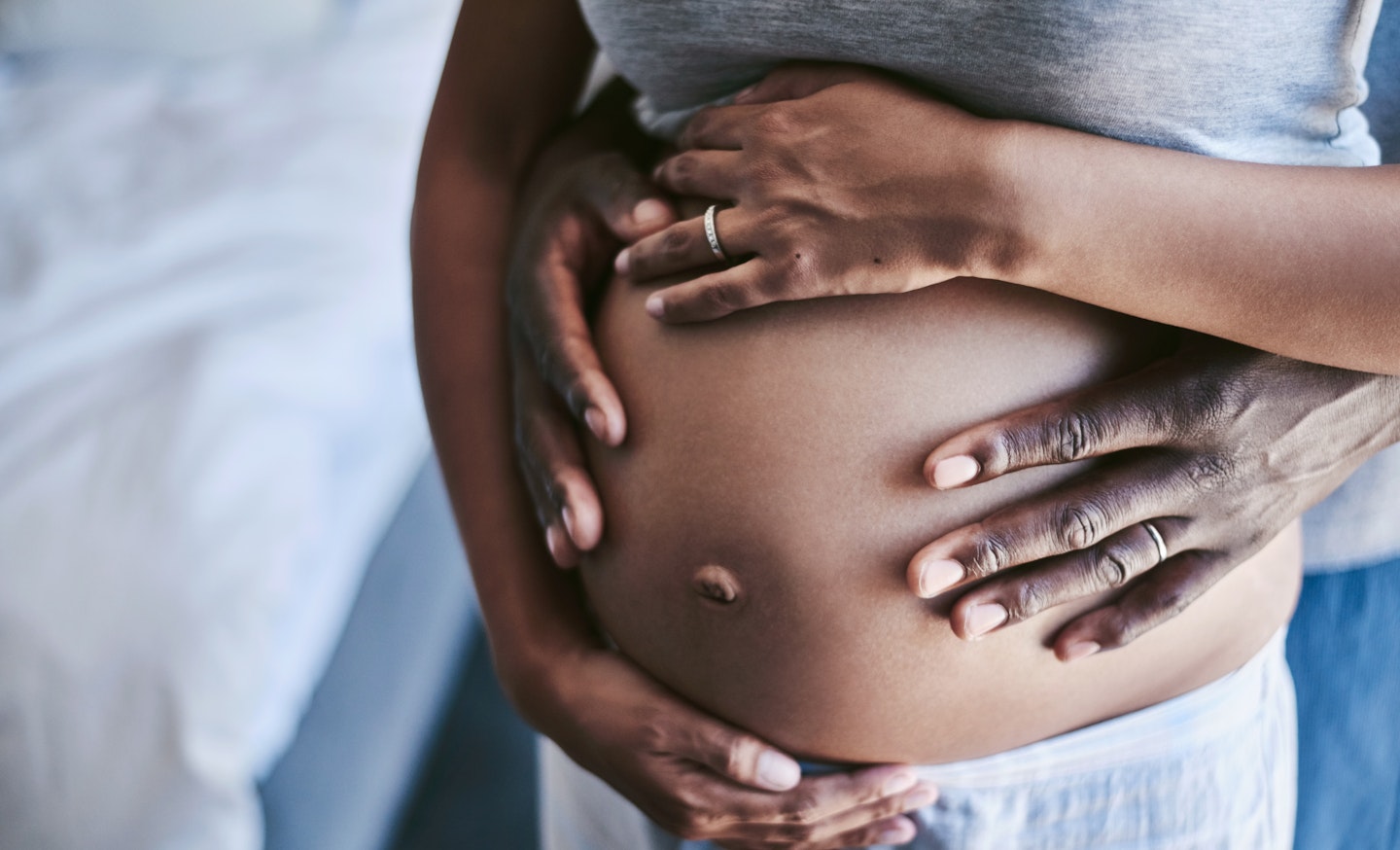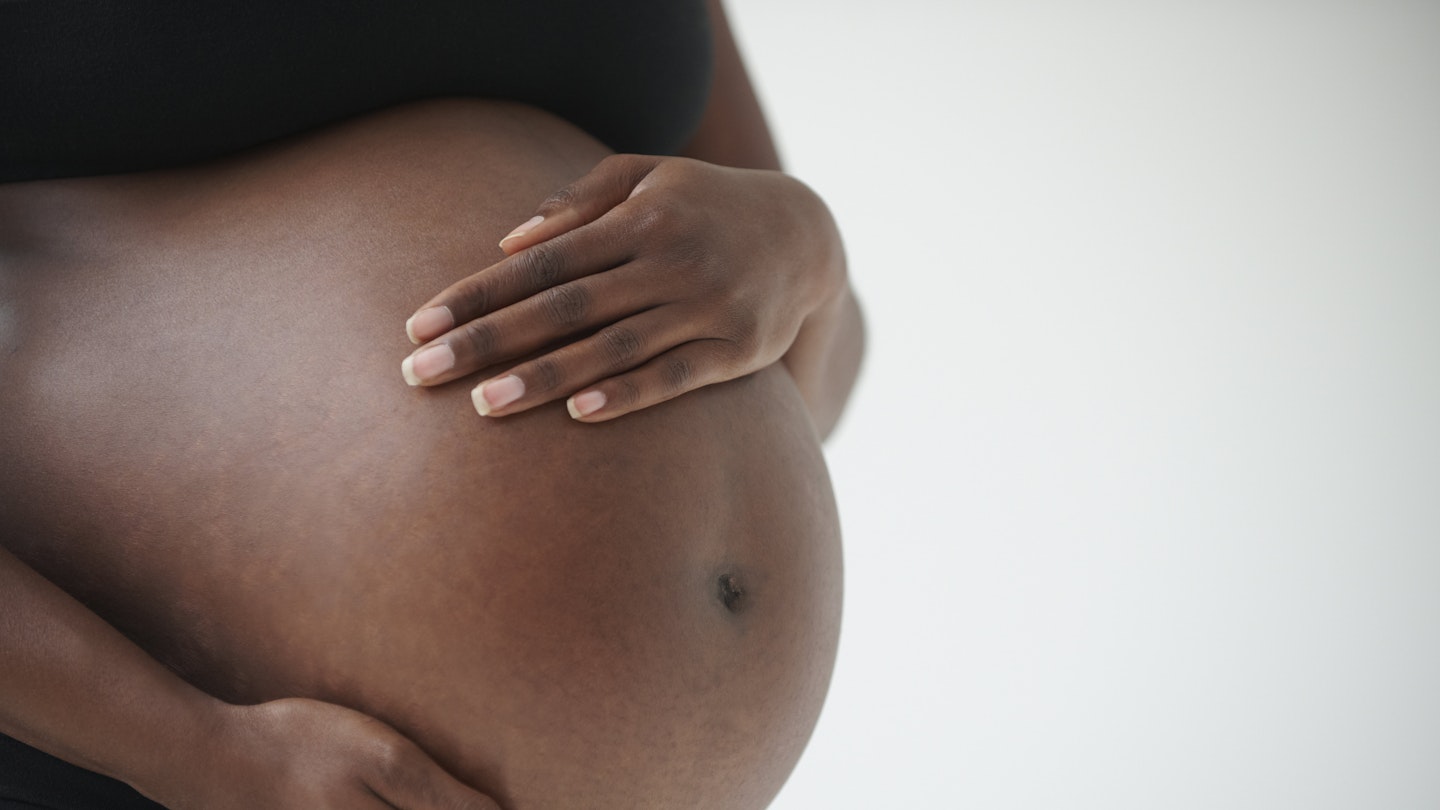Black women are more than four times likely to die in pregnancy or up to one year postpartum compared to white women. But is this an issue of racism, or health?
A recent report from Mbrrace found some very stark results when looking into the number of women who died during or after childbirth, and the link this has to their ethnic background.
The report shows the risk of dying in pregnancy or the year after childbirth, for women is:
• White groups - about seven in 100,000
• Asian - 12 in 100,000
• Mixed ethnicity - 15 in 100,000
• Black groups - about 32 in 100,000
Another Mbrrace report found that babies of mothers living in deprived areas are at higher risk of stillbirths and neonatal deaths than those in other places. The report also found the following stark results:
• Stillbirth rates and neonatal mortality rates increased with deprivation and were higher for mothers under 25 and over 35 across all ethnic groups
• Stillbirth rates were lowest for babies of white ethnicity, born to mothers aged 25 to 34, living in the least deprived areas (2.61 to 2.76 stillbirths per 1,000 births)
• This figure was 10.54 per 1,000 births for babies of black and black British ethnicity born to mothers aged over 35 years living in the most deprived areas
The below video shows Kamisha's story – pregnant with her fourth child and concerned over the care she would recieve and had recieved up to that point. BBC Stories asked maternal professionals what needs to change.
Marian Knight, professor of maternal and child population health at Oxford University says, 'We know that black women are more likely to have severe complications than white women, so it's clearly a really important area to focus on and work out why. The difficulty is that there's no one easy answer, it's a very complex picture.
'When we're thinking about why women die, there's two types of why; there's the why in terms of did they have heart disease, or did they have severe bleeding – but there's also a why in terms of the treatment that we gave to these women, could we treat women better to prevent them dying if there is evidence that they were not being listened to or that the system isn't working for them. So it's going back and making sure that we are focusing on those issues.'
Birth doula Mars Lord adds, 'When you start to talk about the way you felt you've been treated, and people say "no, it's not racism, it's not black women it's all women, this happens to all women", you're shut down, you're silenced, and so you say nothing.
'We need to dismantle the steryotypes, the steryotype of the angry black woman, the strong black woman. We need to allow people the freedom to say "I'm struggling" rather than shutting them down and saying that's just the way the system works.
'If we can accept that education, police etc is all systemically racist, and we're working to change that, then we need to accept the same of the medical system.'
Independant midwife Elsie Gayle says, 'What we have to do is to look at the main ingredient that will actually turn the tide for black women. I believe part of that is around cultural safety, which doesn't just focus on the individual woman and her culture, but also on the person who is giving the care.'
The NHS told BBC Stories that it's working to reduce health inequalities and improve outcomes for mothers and their babies to ensure they receive safe and personal maternity care.
What can we do to improve the care of black birthing people?
While there is a huge focus on the healthcare system to get things right, so that black women do not have to fear for their lives in order to have a child, there are some things we can do as individuals to improve the situation.
Midwife and mother of one, Illy Morrison, explains that a major part of the work to combat these unacceptable statistics, is working on advocacy. Illy is an advocate for black birthing people and she often shares helpful advice that can help women to advocate for themselves. It is important because a lot of black women do not feel as though they can advocate for themselves; especially if it is in an area that they lack knowledge in.

How to be safe and protect yourself as a black birthing person
Here are three of Illy’s top five tips:
-
You are at the center of your care. Meaning: if you do not understand what is happening, demand it is made clear.
-
Choose appropriate birth support. Meaning: the person who is with you is there to advocate for you and ensure you are heard. If they aren’t doing this they aren’t the right support.
-
Knowledge is power. Arm yourself with knowledge of what your rights are and of what is normal and not normal. This knowledge will help you to advocate for yourself.
You can find a wealth of information on Illy’s instagram @mixing.up.motherhood where she speaks a lot about her own traumatic experience, how to advocate for yourself, how not to be gaslit and how to build a good relationship with your care providers.
How have the statistics changed?
Black women are at higher risk of dying during pregnancy and childbirth in comparison to their white counterparts. They are five times more likely to die during pregnancy, birth and up to six months after according to the MBRRACE-UK Maternity report 2018.
This is a problem which has been widely recognised since before 2014 and although six years have passed it would seem nothing has changed, the statistics are still showing the exact same rates of mortality in the 2019 report.
One of the key messages from the MBRRACE-UK maternal report in 2018, was that it should be taken into consideration that black and asian women have a higher risk of dying in pregnancy. Black women were the most likely to experience this with 40 in 100,000 women dying in pregnancy compared to 8 in 100,000 white women.
The 2019 report explains that the inequalities observed in previous reports remain.

Why are black women more likely to die during pregnancy and childbirth?
While the statistics show a factual overview of what is happening, there is only speculation about why this is happening.
Author and researcher, Gemma Mckenzie, who has published reports on induction in labour, freebirthing and the disproportionate number of BAME deaths in labour says, ‘Statistics suggesting rates of maternal deaths are higher in BAME women than their white counterparts raise one important subject: Racism. People do not like talking about racism; it is the elephant in the room. It can make people – especially white people – very uncomfortable. No one likes to think of themselves as racist or acknowledge that they may be unconsciously benefiting from a racist system.
It is easier to believe that racism is something overt and direct – name calling or violence – than to believe it is something that can be structurally ingrained into an institution, a system or a society.'
But when we see statistics like those provided by MBRRACE we cannot deny that this looks like evidence of racism. The questions that immediately arise therefore are: Who or what is responsible for this? Where is it coming from? And how do we tackle it?
One argument that may be raised to explain the higher rates of BAME deaths is that there are physiological differences in BAME women’s bodies that make their births more difficult or complicated.
This is a dangerous conclusion for healthcare professionals to come to because it allows for the complacency that we have seen for far too long to continue. It allows space for excuses which will prolong the problem. If this is the reason for black women being five times more likely to die then there ought to be a rapid response to it, where there is research, where there is accommodation for these physiological differences, where there are lives being saved.
Some healthcare professionals have explained that they have seen that first time mums are less likely to be listened to. They are often thought to be exaggerating. A common complaint among women is that they dilated rapidly, and because it was not by the book, their midwives refused to check them, only to be faced with the surprise of the baby's head moments later.
Whether a woman is a first time mother or not, she should be listened to and her thoughts and feelings taken into consideration. The books cannot possibly explain the process of every single woman and baby that ever lived.
What to do if you've faced racial injustice in maternity care
Olivia Boschat, Associate in the Women's Health Team at Bolt Burdon Kemp, a leading firm of solicitors for serious injury claims, says: "Racial healthcare inequalities in the NHS are costing women and babies their lives. Very serious injuries are being caused because of assumptions and dismissing women’s concerns.
"Work is being done to change the stark statistics through the Royal College of Obstetricians and Gynaecologists’ Racial Inequality Taskforce. Charities and organisations such as Birthrights and Five X More are campaigning to raise awareness and equip women with knowledge of their human rights. But more needs to be done and it needs to be a systemic change. Ultimately, more needs to be done from government to provide better funding, better education and better training.
"As a solicitor specialising in women’s health at Bolt Burdon Kemp, I sadly see the impact of avoidable medical mistakes on individual women and families.
"The aim in a medical negligence claim is to obtain compensation (money) from the opponent. In order to win a medical negligence claim, you have to prove that the medical treatment provided was so poor that no other responsible body of medical practitioners would have provided it, and that this substandard care caused a significant injury which should have been avoided. Money can very rarely compensate a person for the extent of the injury suffered, but it can help with recovery, medical treatment and support for the future."
How to get involved with the Five x More campaign
Even if you are not a black birthing person you can still learn about what is happening, develop your knowledge of the topic so you can speak up if and when the time comes, sign petitions and support local BAME women in your community.
The organisation Five x More is a great resource for people to find out more information. Five x More is a campaign to raise awareness in the disparities in childbirth. It was founded by two black mums Tinuke and Clotilde.
Tinuke is a mum to a two year old boy and a new baby girl who is 3 months old. She is the woman behind @mumsandtea which is a platform that hosts fun and safe events for mums.
Clotilde is mum to two boys who are 5 and 3. She is the founder of @_Prosperitys a mental wellbeing social enterprise which supports Black and South Asian mums in Lambeth and Southwark.
Both the co-founders of the Five x More Campaign are very vocal advocates. They started the campaign because they were shocked and appalled that this has been an issue for such a long time with no improvements.
Since starting the campaign they have had more than 180,000 signatures on a petition to parliament to make a change. They have had news coverage where they have spoken about what many black women have faced and they continue to raise awareness and create and share resources both on instagram and on the Five x More website.
Maternity Disparities Taskforce set up
A taskforce has been created to tackle disparities in maternity care experienced by women belonging to ethnic minorities and those living in deprived areas.
The taskforce will meet every two months and focus on:
• Improving personalised care and support plans
• Addressing how wider societal issues affect maternal health
• Improving education and awareness of health when trying to conceive, such as taking supplements and maintaining a healthy weight
• Increasing access to maternity care for all women and developing targeted support for those from the most vulnerable groups
• Empowering women to make evidence-based decisions about their care
Patient Safety and Primary Care Minister Maria Caulfield said: "For too long disparities have persisted which mean women living in deprived areas or from ethnic minority backgrounds are less likely to get the care they need and, worse, lose their child.
"We must do better to understand and address the causes of this. The Maternity Disparities Taskforce will help level-up maternity care across the country, bringing together a wide range of experts to deliver real and ambitious change so we can improve care for all women - and I will be monitoring progress closely."
Read more popular articles
Candice Brathwaite on modern motherhood, diversity in media, and back to school prep
